Antarctica – Day 4 – Cuverville Island
We’ve arrived at Antarctica! Not surprisingly – it is absolutely beautiful, even with heavily overcast skies! The great thing though – no wind and little swell! Two excursions today and the first time actually stepping onto the Antarctic Peninsula!

For the first excursion, they recommended that we put on lots of layers so we could get a bit of a feel for how many we would need as a minimum. For me that included:
- 2 pairs of socks
- ¾ length exercise tights
- Merino wool thermal bottoms
- Hiking pants
- Outerwear waterproof pants
- T-shirt
- Merino wool thermal top
- Merino wool mid-layer
- Windstopper jacket
- Outerwear waterproof jacket
- Buff
- Beanie
- Gloves
Plus, I had the drysack backpack with my camera gear in it. I felt very much like the Michelin Man and everyone looked very awkward in our first outing with all this stuff on.

Our first landing was at Cuverville Island with a pebble beach and one of the largest Gentoo Penguin colonies in the area.

We were free to spend the 3 hours ashore as we wanted, so long as we stuck to the “visitor paths”, avoided the “penguin highways” and stayed at least 5m away from any penguin.
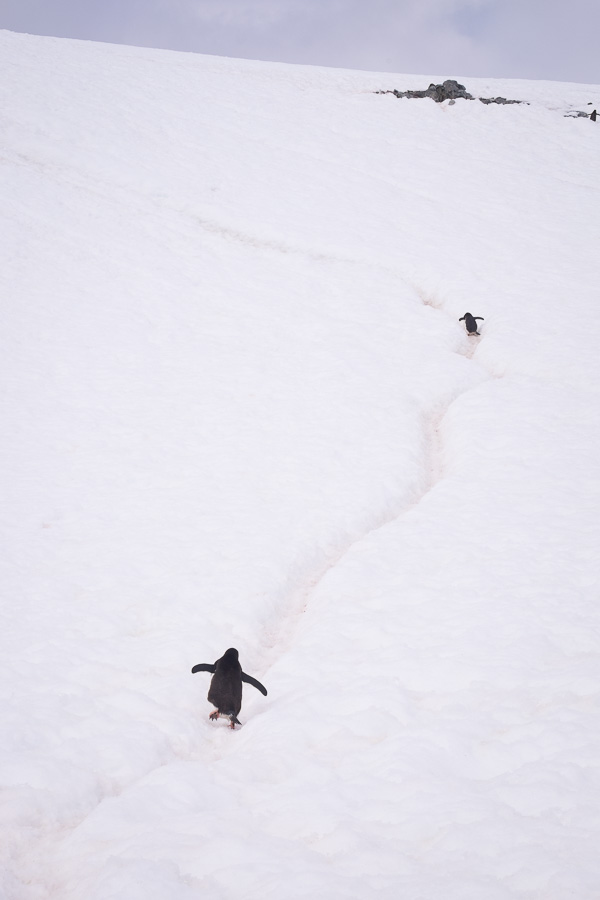
I started off by doing a short hike up the hill to the top of the penguin colony. It was great to do a bit of exercise (I was boiling by the time I got to the top given all the clothes I was wearing), as it offered a stunning view of the bay, and it was a fantastic place to watch a group of Gentoo penguins interacting. Although the trek up through the snow might seem like a chore for the penguins this early in the season, these guys actually have the best spot in the colony. Being higher than everyone else means that they get the jump on the others with their nesting and they have fewer drainage issues for their nests.
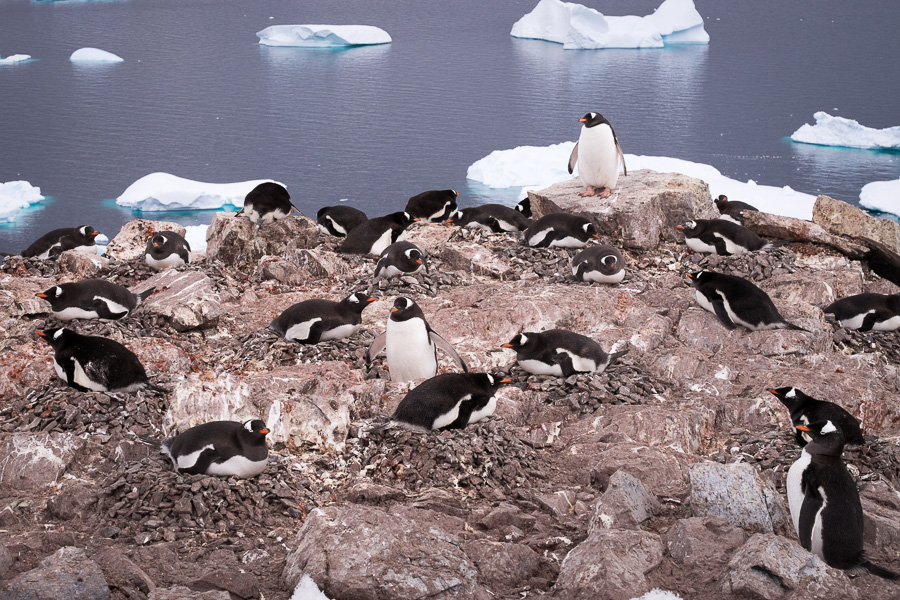
Gentoo penguins build nests of rocks for their eggs, so that as the snow melts it drains easily and the egg remains dry. The nests are located just out of beak-reach of their neighbour, but that doesn’t stop large-scale pilfering of rocks from each other.
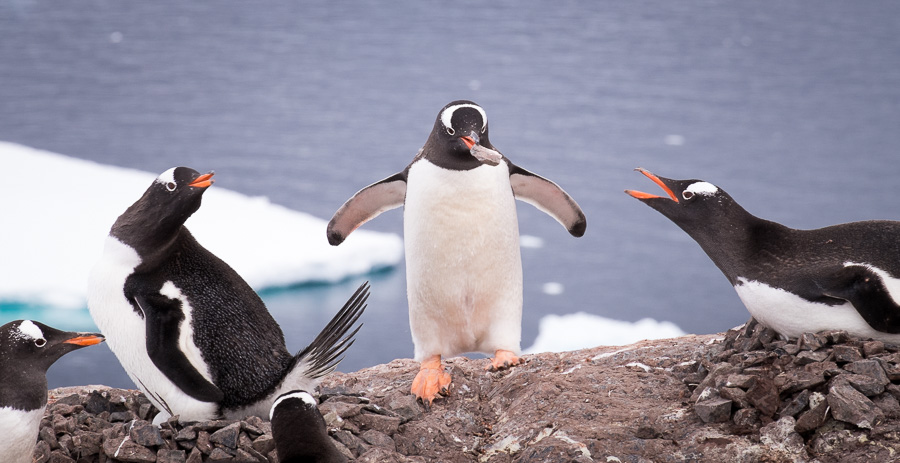
It was highly comical watching as one penguin in particular was beset by two others stealing rocks from opposite ends of the nest – just as the sitting penguin would swing around to deter one penguin, the other would reach in from the other side … and on it went, with a great deal of swarking.
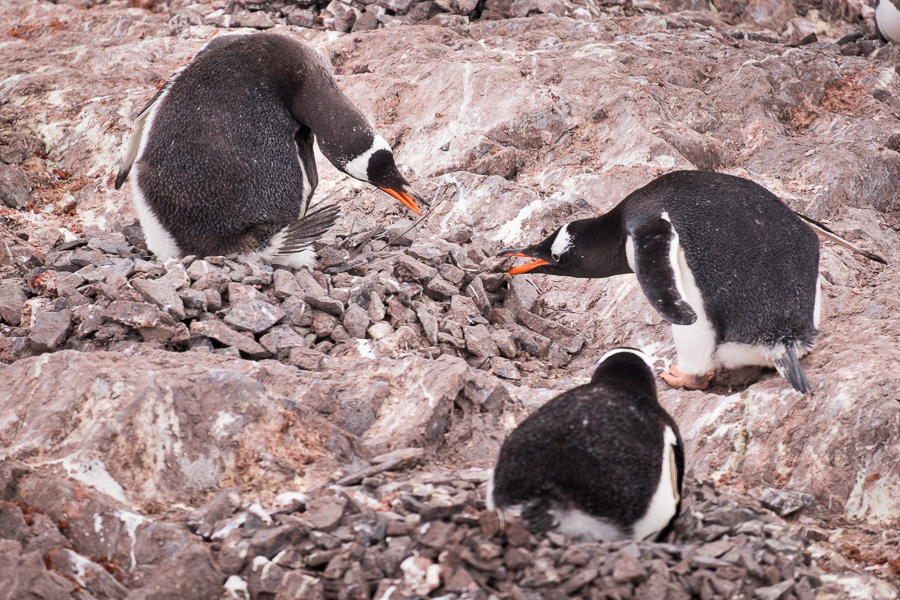
Having watched for a while, I think it’s a no-sum-game with the rock stealing. It would be very interesting to paint one of the rocks and then watch it move around the colony (my inner researcher coming out) 🙂
We even caught a glimpse of some of the eggs they were protecting. Both male and female penguins sit on the eggs, taking turns while the other goes off to feed.

Skuas were never far away and would even land amongst the penguins (greeted by an even greater escalation in the general amount of squawking going on) to try their chances at snatching an egg from an inattentive penguin.

Just a little further along, there was another wonderful view down a side passage towards the Antarctic Continent.

And coming back down there were great views across the whole Gentoo colony.

Wandered out to the other parts of the colony and sat on the pebble beach watching the penguins come in and out of the water for quite a while. They fell over about every 3rd step (but then again, I was doing the same thing) and it was great fun just to watch them. If you sat still long enough, they would even come quite close to you to check out what was going on.

They are fascinating birds, with barbed tongues, and stiff flippers and tails. The Gentoos are characterised by the orange beaks and white patch above the eye, and are the “Climate Change Winners” according to the penguin scientists we had on board the Vavilov. Their colonies are expanding dramatically at the minute, while the other penguin species (the Adelies and Chinstraps – we’ll meet them later) are in quite serious decline. It is thought this is likely caused by the dramatic warming of the Antarctic Peninsula and its effect on the amount of sea-ice available for the krill population. Gentoos are less fussy in what they eat than the other penguin types and therefore theirs are the only populations that are expanding.
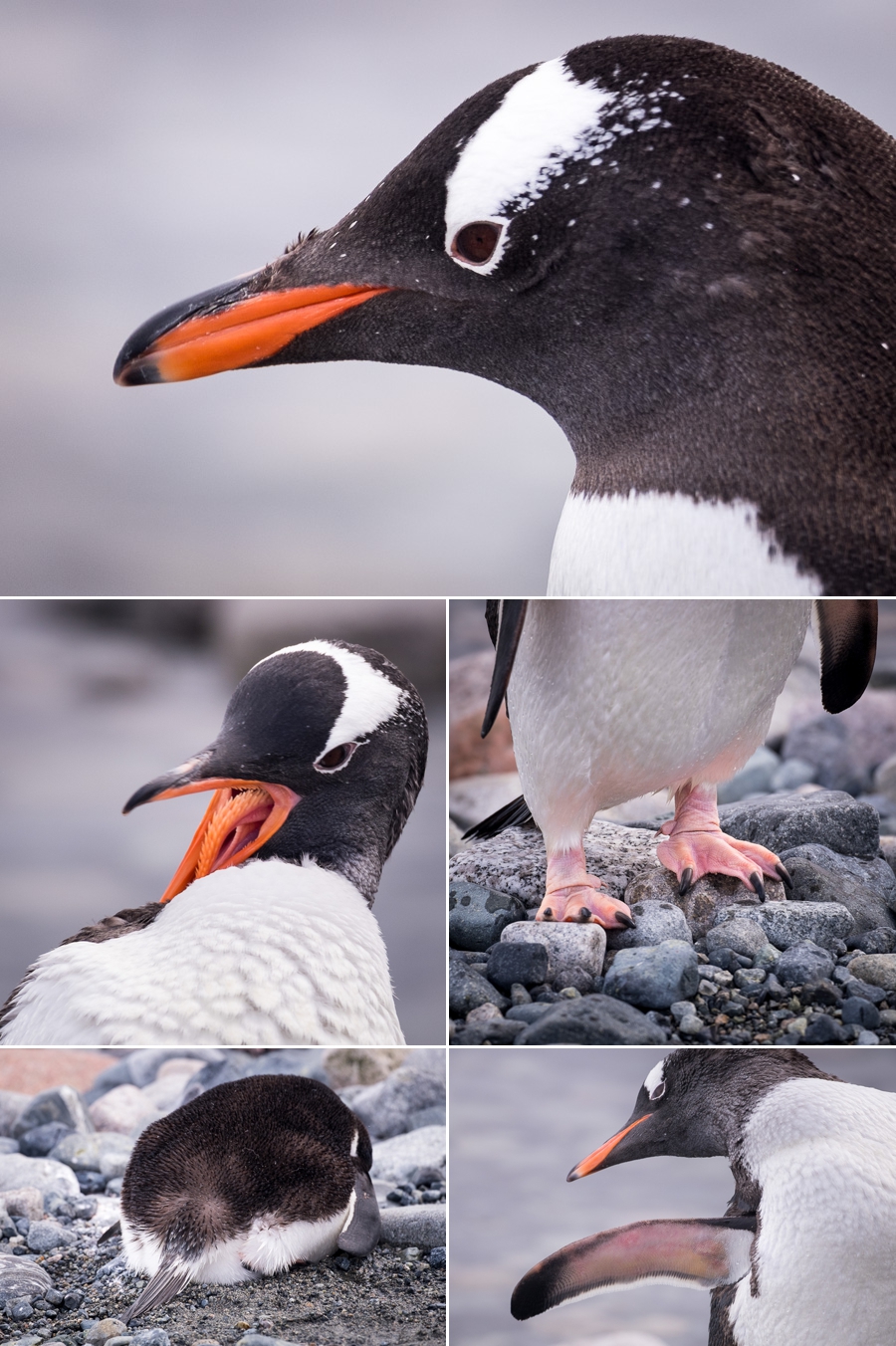
3 hours absolutely flew by and we all agreed we could have stayed much longer. But it was a brilliant first excursion finished off by cruising through some cool ice sculptures on the way back to the boat and lunch.

Read more about the journey to Antarctica
If this post has piqued your curiosity about travelling to Antarctica, read about the rest of my adventure:
- Antarctica – Days 1-3 – Drake Passage
- Antarctica – Day 4 – Cuverville Island
- Antarctica – Day 4 – Wilhelmina Bay
- Antarctica – Day 5 – Cierva Cove, Mikkelsen Harbour
- Antarctica – Day 5 – Spert Island
- Antarctica – Day 6 – Esperanza Station
- Antarctica – Day 6 – Brown Bluff
- Antarctica – Day 7 – Weddell Sea
- Antarctica – Day 8 – Cape Lookout
- Antarctica – Day 8 – Point Wild
- Antarctica – Day 9 & 10 – Recrossing the Drake Passage
- Falkland Islands – Day 11 – West Point Island
- Falkland Islands – Day 11 – Saunders Island
- Falkland Islands – Day 12 – Stanley
